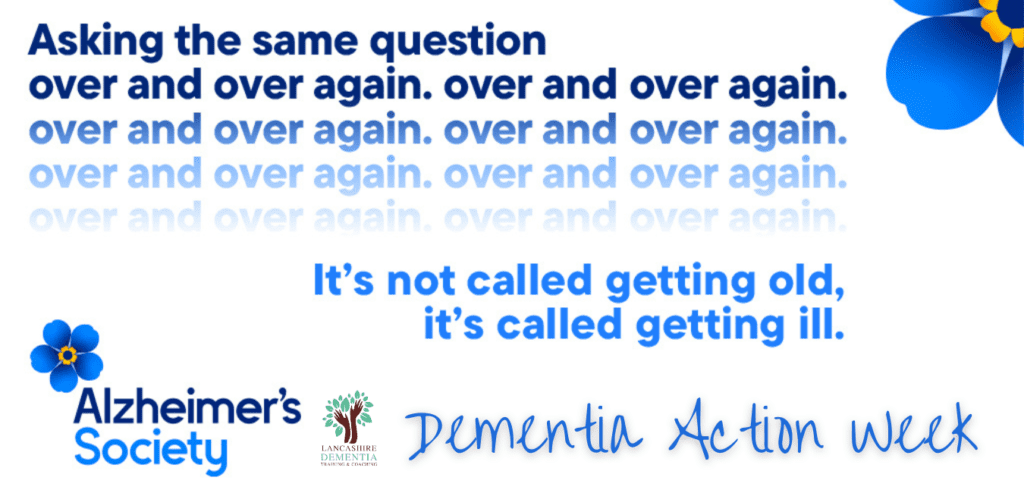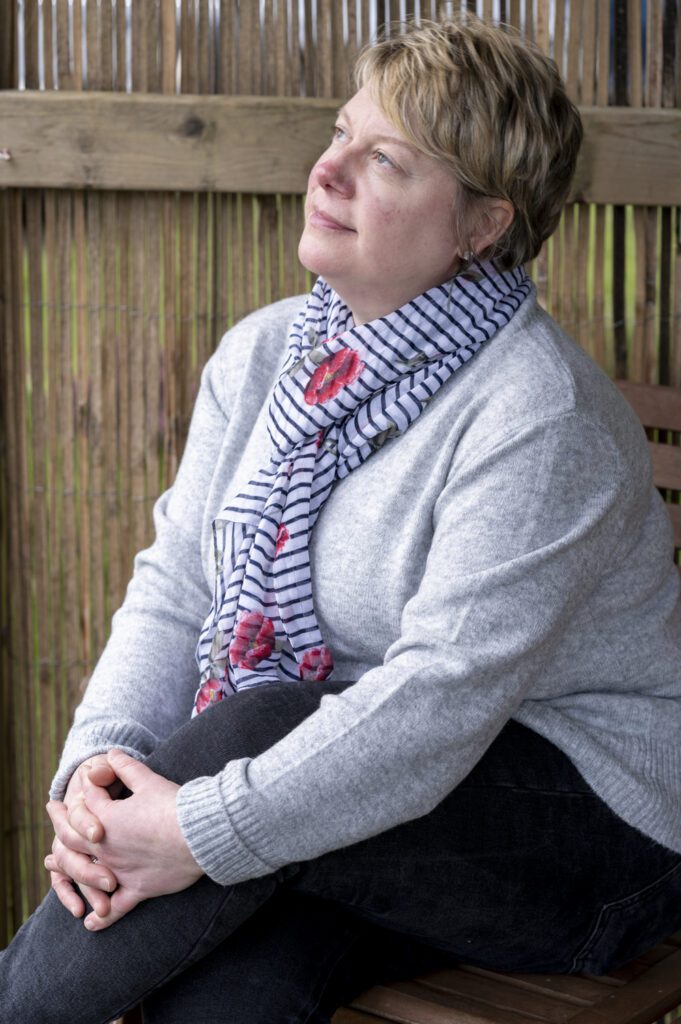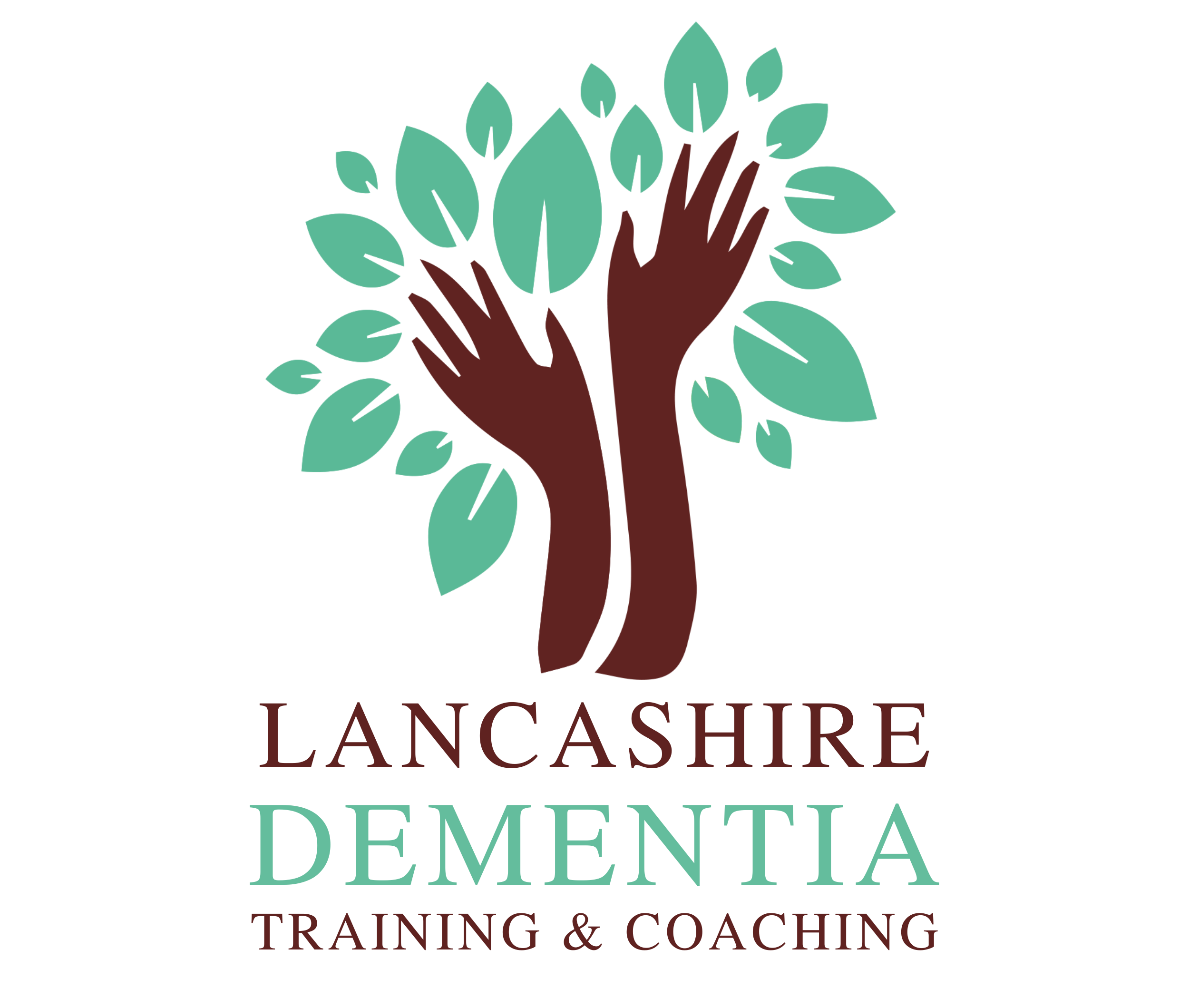Dementia Action Week (15th-21st May 2023)

What is Dementia Action Week?
Dementia Action Week is the Alzheimer’s Society’s biggest and longest running awareness campaign. Each year, they work with individuals and organisations across the UK encouraging people to ‘act on dementia’.
Dementia Action Week 2023 runs from 15-21 May.
In 2022, Dementia Action Week encouraged people who were concerned that they or someone they know may be experiencing dementia symptoms to seek further help. They provided information on memory loss, advice on talking to the GP, and ways to cope with memory loss.
Throughout the week, they saw a 43% average increase in calls to the dementia support line from those seeking information and support.
Increasing diagnosis rates is such an important issue that it’s the focus again this year.
How do I know when it’s time to seek medical support?
We all go upstairs and forget what we’ve gone upstairs for, right? Or we can drive down the road and forget where we’re going?
But if we are regularly noticing changes in ourselves or others, how do we know when it’s time to seek medical support?
This can be a really difficult question to ask yourself.
For some, you will know that the person you have been providing extra support for has changed – you have taken on the role as a caregiver and you carry more responsibility that you used to do. For others, you may not be too sure; “Am I worrying about nothing?”, “What will happen if the GP/doctors do find out there’s something wrong?”, “Am I/are we prepared?”
What are the signs I should be aware of?
We know from research and from carers and families that the signs and changes in people start 2-3 years before a formal diagnosis is given.
Here are some signs others have reported:
- Changes in driving i.e judging distances, following road signs
- Losing everyday objects such as keys, money, glasses
- Forgetting important family dates/events
- Finding it more difficult to plan and solve problems
- Getting lost in familiar places
- A change in mood i.e. more anxious and feeling low
- Changes in perception i.e tripping as you walk upstairs, placing a cup on the edge of a table.
Top tips if you are noticing a few signs but you’re unsure wheher to take action:
- Reach out – speak to other family members and friends, have they noticed anything? It can be a lonely place when you keep your thoughts and anxieties to yourself.
- Speak to your GP. They may carry out routine tests such as urine/blood tests to see if there are any underlying problems. It may not be dementia. The GP may also ask how these symptoms are impacting your/their life and how long they have been going on for. The Alzheimer’s Society has a wonderful checklist which you can download for free and use. A handy tool to take to the GP.
- What support is available in the community? Local groups (for carers/ people with dementia/ or social). Most GP surgeries have a community connector or social prescriber. Ask to be referred to widen your circle of support and feel connected.
Real-life story:
“I had noticed changes in John for quite sometime though I had always put it down to something else like tiredness and stress. I suppose deep down I knew there was something not quite right, though I was very frightened that if I did mentioned my concerns to him or our daughter that they may think I was exaggerating. I was also worried that once the professionals were involved, things would be taken out of our control. Thankfully John agreed to go to the doctors. She [the doctor] was so understanding and kind to us, really put our minds at ease. It was a lengthy diagnosis, though one we felt supported in, and it was a relief in the end to get the diagnosis. I feel more in control and I know support is there.”
Help and resources
If you feel you are affected by anything mentioned in this blog, I am more than happy to set up a consultation with you to find out how I can further help, or to point you in the right direction.
Find out more here about The Alziemer’s Society and Dementia Action Week.
Get involved – in the challenge dementia quiz from Alzhiemer’s Society.

About Lancashire Dementia Training and Coaching
“How can we ever thank you enough Rachel? Your knowledge and support has enabled us to cope much better since having the sessions. Knowing you are there with a listening ear helping us make sense of how we feel and the actions we take. Instead of being reactive we now, stop and think about things more with a much better outcome (and less guilt). Your practical and evidence knowledge gives us confidence and we even pass the tips onto our friends and family going through similar circumstances. This service should be available to everyone going through this journey, so pleased we found you. Forever grateful.” – Heather and Family
Hi, I’m Rachel and I’m a dementia coach. I live in Haslingden, Rossendale. Surrounded by beautiful hills, great for walking our dog, Cassie which is something I love to do. I enjoy giving back to the community and I am a trustee of a small charity ‘Beacon- dementia & wellbeing’ in Rossendale. Beacon facilitate activity groups at the Whitaker Museum for people living with dementia, their carers and people who want to connect with other carers/people living with dementia.
